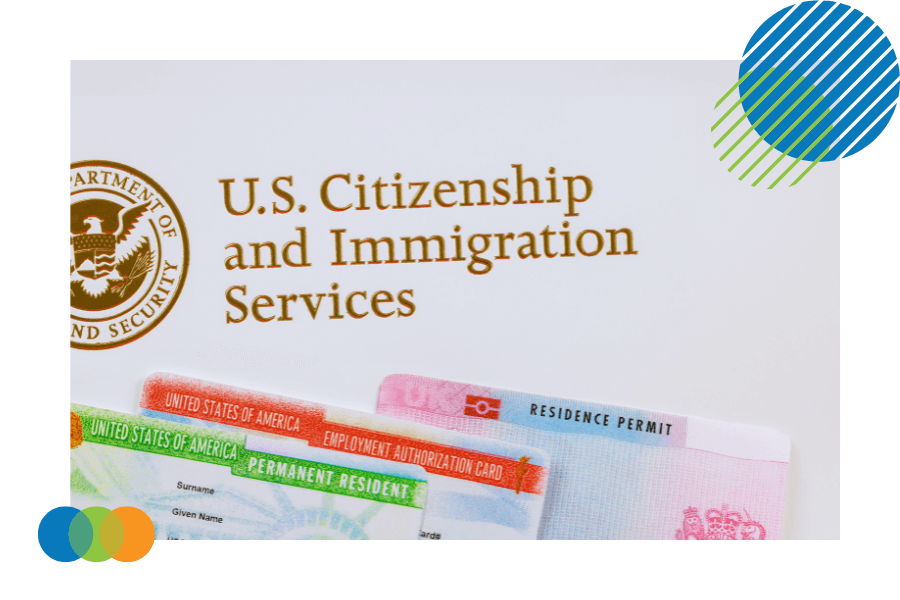 |
Written by Liz McDermott |
Workplace raids conducted by Immigration and Customs Enforcement (ICE) can be daunting for employers. As government enforcement of immigration laws continues to intensify, understanding the implications of these raids and how to prepare for them is essential.
This article covers what employers must know about immigration enforcement, including workplace raids and I-9 audits, legal rights, preparation strategies, and best practices for responding effectively.

Understanding Workplace Raids
Definition and Purpose
Workplace raids are operations initiated by ICE to enforce immigration laws. They typically aim to identify undocumented workers. Various factors, including tips from whistleblowers, suspicious activity, or patterns of non-compliance with immigration regulations, can prompt these raids. The primary goal is to ensure employers adhere to employment verification laws and apprehend individuals without proper documentation.
Legal Framework
The legal framework governing workplace raids is complex. ICE agents have specific authorities under the Immigration and Nationality Act (INA) to conduct audits and raids. Generally, there are two main types of enforcement actions that employers should be aware of:
-
I-9 Audits: ICE may audit Form I-9, which verifies employees' qualifications and employment eligibility. Employers are typically given a Notice of Inspection (NOI) that specifies the documents required for review.
-
Raids: In contrast to audits, raids involve ICE agents entering a workplace, often with a search warrant, to detain undocumented individuals. These operations can be more disruptive and intimidating, as agents may arrive in significant numbers and with law enforcement equipment.
Legal Rights During Raids
Employee Rights
During a workplace raid, employees have specific rights that they can exercise:
-
Right to Remain Silent: Employees are not obligated to answer questions posed by ICE agents and can request to speak with an attorney before providing any information.
-
Right to Legal Counsel: Employees may insist on having an attorney present during ICE questioning or interviews.
-
Protection from Discrimination: Employers must ensure that all employees, regardless of their immigration status, are treated fairly and without discrimination.
Employer Responsibilities
Employers also have rights and responsibilities during workplace raids:
-
Request Documentation: Employers can request to see the warrants presented by ICE agents. There are different types of warrants, including judicial warrants (which allow agents to enter private areas) and administrative warrants (which do not).
-
Designate a Point of Contact: Employers should designate individuals responsible for interacting with ICE agents during a raid. This person should be trained to handle such situations calmly and effectively.
-
Document the Process: Employers should keep detailed records of the raid, including the names and badge numbers of the agents involved, the areas searched, and any documents seized.
Preparing for Potential Raids
Developing a Response Plan
A well-defined response plan is crucial for mitigating the impact of a workplace raid. Employers should take the following steps:
-
Assemble a Response Team: Designate a team to handle ICE interactions. This team should include legal counsel, HR representatives, and management personnel.
-
Train Staff: Conduct training sessions for employees to familiarize them with their rights and the company during a raid. This will help reduce anxiety and ensure everyone knows how to respond appropriately.
-
Create a Communication Strategy: Develop a clear communication plan that outlines how information will be shared with employees during and after a raid. Transparency is key to maintaining trust within the workforce.
Conducting Internal Audits
Proactively conducting internal audits of Form I-9s and other employment verification documents can help identify and rectify potential issues before ICE arrives. Employers should:
-
Review I-9 Forms: Ensure that all I-9 forms are accurately completed and retained as the law requires.
-
Correct Errors: Address any discrepancies or errors in documentation promptly to demonstrate reasonable faith efforts to comply with immigration regulations.
-
Consult Legal Counsel: Engage legal experts to guide the internal audit process and ensure compliance with immigration laws.
Responding to an ICE Raid
Immediate Actions
When ICE agents arrive at a workplace, employers should remain calm and follow these immediate actions:
-
Verify the Warrant: Request to see the warrant and ensure it is valid. Understand the scope of the warrant to prevent unauthorized searches.
-
Limit Access to Private Areas: If the warrant does not allow access to certain areas, inform the agents and ensure they do not enter those spaces without proper authorization.
-
Document Everything: Keep detailed notes of the raid, including the time, date, and actions ICE agents took. This documentation can be crucial for legal defense later.
Employee Interaction
During a raid, employers should remind employees of their rights:
-
Encourage Employees to Stay Calm: Advise employees not to flee or act suspiciously, as this may draw attention.
-
Reinforce the Right to Remain Silent: Employees should be reminded that they do not have to answer questions about their immigration status.
-
Facilitate Legal Support: Ensure that employees know their right to legal assistance and provide information on how to access it if needed.
Post-Raid Considerations
Follow-Up Actions
After a raid, employers should take proactive steps to address the aftermath:
-
Communicate with Employees: Hold a meeting to discuss the events of the raid, address any concerns, and reinforce the company's commitment to protecting its workforce.
-
Review Documentation: Assess any documents or information seized by ICE and consult with legal counsel on how to respond to any notices or fines that may be issued.
-
Evaluate Policies: Use the experience to review and improve workplace policies related to immigration compliance and employee rights.
Legal Implications
Employers may face legal consequences following a raid, including fines or penalties for non-compliance with immigration laws. It is essential to:
-
Consult Legal Counsel: Work closely with legal experts to navigate any potential legal challenges arising from the raid.
-
Prepare for Possible Audits: To ensure ongoing compliance, prepare for potential follow-up audits from ICE or other agencies.
Best Practices for Immigration Compliance
Establishing a Culture of Compliance
Creating a workplace culture that prioritizes compliance with immigration laws can help mitigate risks associated with workplace raids. Employers should:
-
Educate Employees: Provide ongoing training and resources to educate employees about their rights and the importance of compliance with immigration laws.
-
Implement Clear Policies: Develop and enforce clear policies regarding hiring practices, documentation, and reporting procedures for potential violations.
-
Foster Open Communication: Encourage employees to voice concerns or report suspicious activity without fearing retaliation.
Utilizing Technology
Leveraging technology can enhance compliance efforts and streamline processes:
-
E-Verify System: Consider enrolling in the E-Verify program to verify the employment eligibility of new hires electronically.
-
Document Management Systems: Implement systems to securely and efficiently store employee documentation.
How Vubiz Can Help You Meet Compliance
Workplace raids are a significant concern for employers, especially in an environment of heightened immigration enforcement. However, employers can more effectively navigate these challenges by understanding their rights and responsibilities, developing comprehensive response plans, and fostering a culture of compliance.
Whether you want to stay current on the latest compliance regulations or provide compliance training to mitigate the risks of immigration enforcement, Vubiz has the most comprehensive compliance training library for businesses in the U.S. and Canada. Get started with our Immigration Law Primer course to learn the primary U.S. immigration laws, penalties, and procedures, including the purpose and importance of Form I-9 in the employment verification process.
